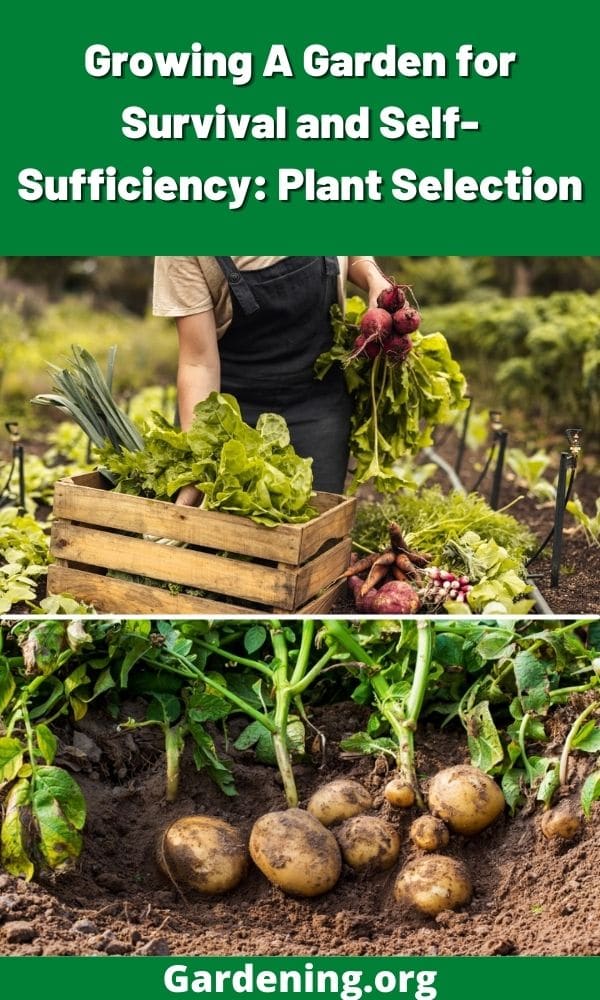The Basic Principles Of Homegrown Food
The Basic Principles Of Homegrown Food
Blog Article
The Sustainable Gardening Statements
Table of ContentsHomegrown Food Things To Know Before You Get ThisThe Single Strategy To Use For FruitsSome Known Facts About Homesteading.Some Known Facts About Homesteading.Examine This Report about Sustainable FarmingThe smart Trick of Vegetables That Nobody is DiscussingOur Homesteading Diaries
Let's go into these benefits that are as helpful for Mom Earth as they are for our souls (vegetables). Among the most substantial perks of growing my own fruit and vegetables has been knowing that I'm taking strides in decreasing my carbon footprint. https://disqus.com/by/daniel_carlisle/about/. Here's how breaking ground in your yard makes a difference: The veggies and fruits from my self-dependent garden do not require to travel hundreds or countless miles to get to my plateI've bid goodbye to plastic bags and containers; my fruit and vegetables goes from garden to table without unnecessary packaging that harms our environment. I control what goes on and into my garden, choosing natural pest control and organic fertilizers over damaging chemicals that can leech into our water supply. Investing time in your self-sufficient garden isn't almost getting your hands filthy; it has to do with providing Earth an assisting hand too! Picture this each seed planted in the harmony of your garden is like casting an elect biodiversity preservation.

Getting My Eco-friendly Practices To Work
It's no secret that when you're out there with your hands in the dirt, nurturing brand-new life from the earth, there's something incredibly calming and grounding about the entire procedure. However beyond that sensation of tranquility lies concrete advantages for both the mind and body. Exploring why a lot of garden enthusiasts call their plot of land their delighted place reveals some amazing mental health benefits: There's something naturally calming about the act of gardening.
It belongs to nature's own brand of tension treatment. Regular direct exposure to sunlight can boost your serotonin levelsthat yearned for 'feel-good' hormoneleading to a better mindset. Monitoring planting schedules and strategizing plant care sharpens mental skill and can even build strength against age-related cognitive decrease. Our busy digital world typically leaves us feeling detached from the natural environment.
The 5-Second Trick For Homegrown Food
It may not be the first thing that enters your mind when you consider remaining fit, however gardening is really an exceptional method to stay active: From digging to raising bags of soil, gardening involves all sorts of physical labor that engages several muscle groups.: Those intricate tasks such as pruning or harvesting small veggies need fine motor skills and enhance hand-eye coordination.

Eco-friendly Practices for Beginners
You could get some seed starter pots, too. The time can differ extensively based on the size and intricacy of your garden. Anticipate to devote at least a couple of hours every week to planting, weeding, watering, and harvesting. Definitely! You can start with container gardening or vertical gardens. They're perfect for verandas or little outdoor patios so go on and flex that green thumb! Embracing the world of self-sufficiency, particularly throughout spring, is more than a hobbyit's a way of life shift.
It has actually offered me manage over what I consume, where it originates from, and how it's grown. The reduction in grocery bills and the reduction in environmental effect are tangible outcomes that reinforce the joys of an independent way of life. Furthermore, the psychological clearness and physical vigor I have actually gained through gardening are invaluable rewards that support both body and soul.
Sustainable Farming Fundamentals Explained
A self-sufficient garden is essential for sustainable living practices. Substantial money savings can be recognized through homegrown fruit and vegetables. Quality assurance guarantees more secure, healthier food intake from your garden.
They are easy to grow and can be utilized in a variety of meals. To grow potatoes, just plant 'seed potatoes' and keep the soil moist. Potatoes can be saved for a number of months, which makes them an excellent crop to have on hand.
These are easy to grow and with the right climate and temperature levels, you can grow them all year round. Container-grown tomato plants can flourish on balconies or patio area gardens and require minimal space due to the fact that you can grow as numerous as you desire. Additionally, cherry tomatoes grow little and are great for salads and sandwiches.
The Greatest Guide To Eco-friendly Practices
It's high in vitamins, minerals, and antioxidants, and it is among the simplest crops to grow. You can begin kale from seedlings or seeds and it can grow year-round in most climates. - Green beans are another easy crop for a self-sufficient garden. sustainable farming. They require very little upkeep and can be harvested once a week throughout the season.
- Lettuce is simple to grow and can be used in salads, sandwiches, and tacos. It is likewise extremely adaptable and can grow in almost any temperature level. Lettuce is likewise one of the fastest-growing crops and can be harvested within just a couple of weeks of planting. - Zucchini is a prolific fruit and vegetables once it starts fruiting, so it's terrific to have in your self-sufficient garden.
More About Eco-friendly Practices

Report this page